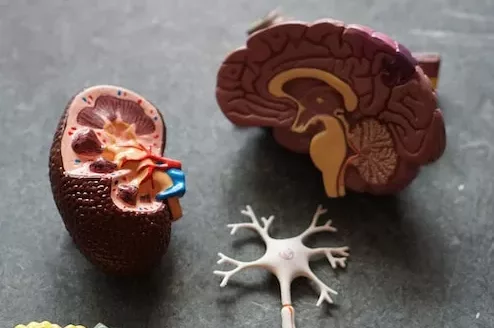

The Impact of Traumatic Brain Injury
Traumatic Brain Injury (TBI) is a type of brain injury caused by a sudden, intense physical force or impact. It is a major cause of death and disability across the world and can have long-term effects on a person’s physical, psychological, and social wellbeing. In this article, we will discuss the causes, symptoms, diagnosis, and treatment of TBI, and the long-term effects on physical, cognitive, emotional, and economic health.
What is a Traumatic Brain Injury?
A traumatic brain injury (TBI) is an injury to the brain caused by a sudden, intense physical force or impact. It can be caused by sports-related accidents, falls, physical or sexual assault, motor vehicle accidents, or other blunt force trauma. TBIs can range in severity from mild to severe, with mild cases causing temporary mental confusion, and severe cases resulting in long-term physical and cognitive disability.
Causes and Common Severities of TBI
TBIs can be caused by a variety of events, such as sports injuries, falls, physical or sexual assault, motor vehicle accidents, or other blunt force trauma. The most common causes of TBI are falls, motor vehicle accidents, and gunshot wounds. TBIs can range in severity from mild to severe, and can be classified as either closed or open head injuries. In closed head injuries, the skull is not breached, while in open head injuries, the skull is breached and the brain is exposed to the environment.
Symptoms of Traumatic Brain Injury
The symptoms of TBI can vary depending on the severity of the injury. Mild TBIs may cause temporary confusion, disorientation, headaches, dizziness, and fatigue. Severe TBIs may cause unconsciousness, seizures, loss of sensation, memory loss, difficulty speaking, and difficulty processing information.
Diagnosis and Treatment of TBI
A TBI is diagnosed through a physical examination, a neurological exam, and imaging tests such as a CT scan or an MRI. Treatment of TBI depends on the severity of the injury. Mild TBIs can be managed with rest and medications to reduce headaches, dizziness, and nausea. Severe TBIs may require surgery to repair damage to the skull and brain, and may require long-term physical and cognitive rehabilitation.
Long-Term Effects of TBI
TBIs can have long-term effects on physical, cognitive, emotional, and economic health. TBIs can cause physical disabilities such as paralysis, visual or hearing impairments, and difficulty with physical coordination. Cognitive changes can include memory loss, difficulty concentrating, and difficulty controlling emotions. Emotional changes can include depression, anxiety, and mood swings. Finally, TBIs can cause financial hardship due to medical costs and lost wages due to disability.
Cognitive Changes After TBI
Cognitive changes after TBI can include memory loss, difficulty concentrating, difficulty understanding language, difficulty communicating, and difficulty controlling emotions. TBIs can also cause difficulty reasoning, making decisions, and problem-solving.
Physical Effects of TBI
Physical effects of TBI can include paralysis, weakness, loss of sensation, visual or hearing impairments, and difficulty with physical coordination. TBIs can also cause spasticity, which is the involuntary contraction of muscles.
Social and Emotional Changes After TBI
Emotional and social changes after TBI can include depression, anxiety, mood swings, and difficulty with social interactions. TBIs can also cause difficulty managing emotions and controlling behavior.
Economic Impact of TBI
TBIs can have a significant economic impact due to medical costs, lost wages due to disability, and other costs associated with long-term care. TBIs can also cause financial hardship for families due to the extra costs associated with caring for a loved one with a TBI.
Support for Families of TBI Patients
Families of TBI patients may require emotional and financial support to cope with the long-term effects of TBI. Support can come in the form of counseling, financial assistance, and support groups.
Education and Prevention of TBI
Education and prevention are important in reducing the number of TBIs. Education can include providing resources and information on safe practices, such as wearing a helmet while riding a bike or playing sports. If a TBI is suspected, immediate medical attention should be sought.
Traumatic Brain Injury (TBI) is a major cause of death and disability across the world, with long-term effects on a person’s physical, psychological, and social wellbeing. Education and prevention are important in reducing the number of TBIs, and support is available for families of TBI patients. With diagnosis and treatment, many people with TBI can lead full and productive lives.



